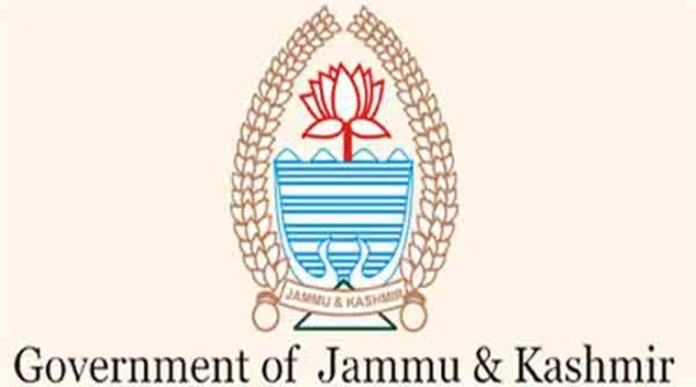Abid Bashir
New Delhi (NVI): To weed out inefficiency in J&K administration and provide job opportunities to unemployed youth, the UT government today amended the service regulations which will allow it to retire any employee after 48 years of age or 22 years of service.
The J&K government said the step has been taken to ensure better output of the employees and create employment opportunities for a swelling number of unemployed youth in the UT.
To implement the orders, the UT administration introduced certain substitutes in Article 226(2) of Jammu and Kashmir Civil Service Regulations. Top bureaucrats told NVI that the decision was taken after hectic deliberations between LG Manoj Sinha and the officials in the administration.
The notification states that in exercise of powers conferred under provision to Article 309 of Indian Constitution, Lieutenant Governor has directed that Article 226(2) of Jammu and Kashmir Civil Service Regulations may be substituted as “226 (2): (a) Notwithstanding anything contained in these Regulations, government may, if it is of the opinion that in the public interest to do so, require any government employee other than one working on a post which is included in Schedule II of these rules, to retire at any time after he/she has completed 22 years of qualifying service or on attained 48 years of age.”
As per the criteria to be followed by the review committee, while making the recommendations, if a government servant is found to be ineffective in his/her work, then he/she may be retired at the age of 48 or after completing 22 years of service.
“The basic consideration in identifying such Government servants should be their fitness competence to continue in the post held and their utility for the purpose for which they are employed.
“A Government servant retiring on superannuation within a next one year from the date of consideration of his case, may be retired under these regulations, where there is a sudden and steep fall in the competence, efficiency or efficiency of the Government servant. Retiring a person is in public interest and his/her continuance is not serving any public purpose,” read an official statement.
As per the orders, a government servant is also ineffective if his service during the preceding 5 years or since his last promotion has deteriorated suddenly or substantially. “This is not a consideration, however, where the Government servant is to be retired on grounds of doubtful integrity,” the order read.
The notification further states that such a government servant shall be granted pensionary benefits admissible under these rules on the basis of qualifying service put in by him on the date of such retirement.
“A Government servant who is retired immediately after allowing him pay and allowances in lieu notice will be entitled to pension from the date of such retirement and the pension shall not be deferred till after the expiry of the three months for which he is paid pay and allowances,” it said.
Setting the time schedule to be followed, it stated that “the exercise of review of performance of the Government Servants will be initiated for each Government Servant for the first time after her/his completion of 22 years of Government Service or attaining 48 years of age and any time subsequently, as may be required.”
It further states that “A register of the Government servants who are due to attain the age of 48 years or to complete 22 years of service, has to be maintained by the Administrative Department. The register should be scrutinized at the beginning of every year by officers to be nominated by the Administrative Department concerned and the review be undertaken as mentioned in sub-clause (b).”
The Government may, at any time after a Government servant has attained the age of 48 years or completed 22 years of service, as the case may be, retire him in public interest, it said.
As per the order, there is also no bar on the Government to review any such case again where it was decided earlier to retain the officer, but the Administrative Department is of the opinion that it is expedient to undertake the review again on account of changed circumstances, in public interest.
-ARK








